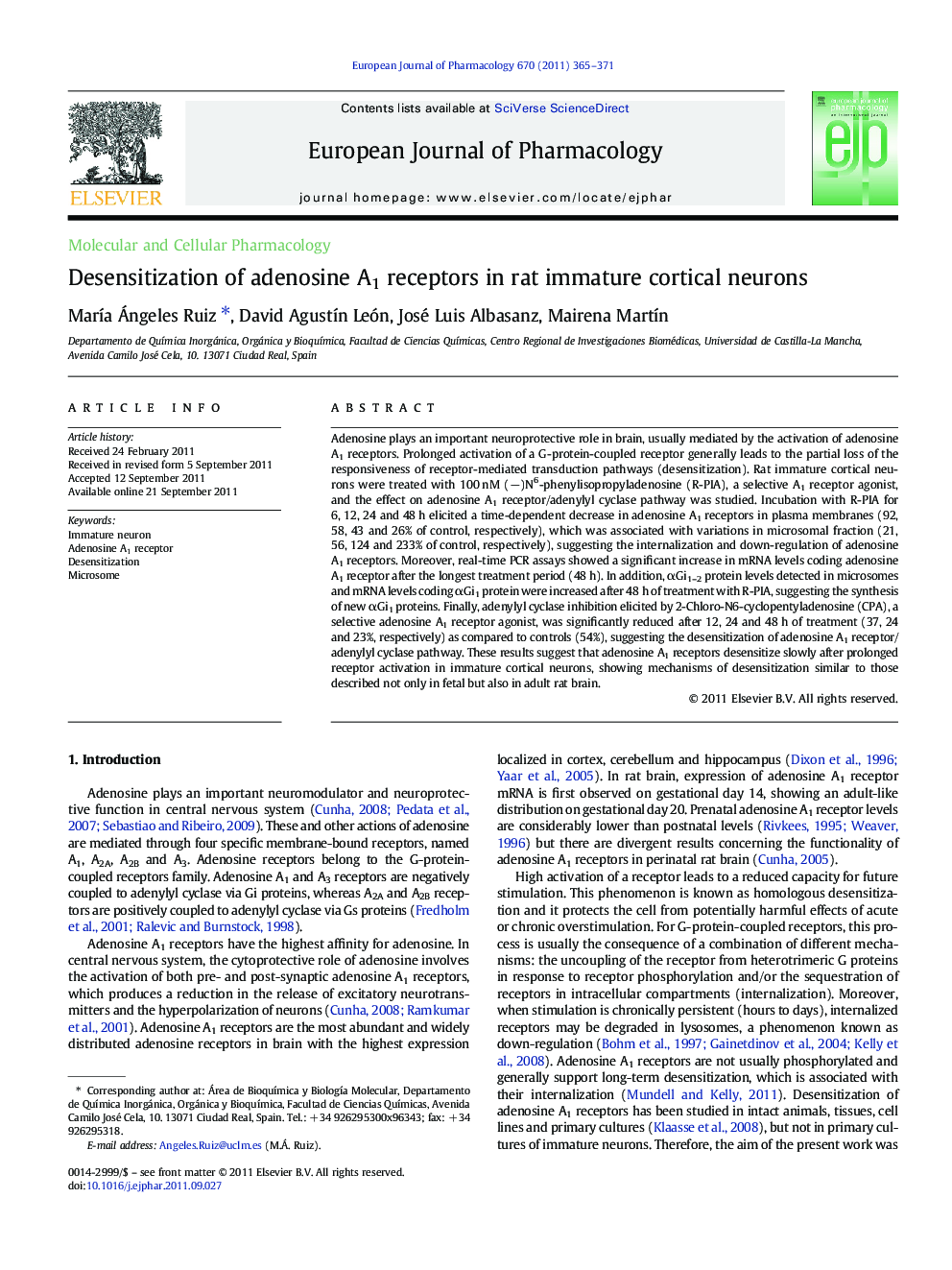| Article ID | Journal | Published Year | Pages | File Type |
|---|---|---|---|---|
| 5829951 | European Journal of Pharmacology | 2011 | 7 Pages |
Abstract
Adenosine plays an important neuroprotective role in brain, usually mediated by the activation of adenosine A1 receptors. Prolonged activation of a G-protein-coupled receptor generally leads to the partial loss of the responsiveness of receptor-mediated transduction pathways (desensitization). Rat immature cortical neurons were treated with 100 nM (â)N6-phenylisopropyladenosine (R-PIA), a selective A1 receptor agonist, and the effect on adenosine A1 receptor/adenylyl cyclase pathway was studied. Incubation with R-PIA for 6, 12, 24 and 48 h elicited a time-dependent decrease in adenosine A1 receptors in plasma membranes (92, 58, 43 and 26% of control, respectively), which was associated with variations in microsomal fraction (21, 56, 124 and 233% of control, respectively), suggesting the internalization and down-regulation of adenosine A1 receptors. Moreover, real-time PCR assays showed a significant increase in mRNA levels coding adenosine A1 receptor after the longest treatment period (48 h). In addition, αGi1-2 protein levels detected in microsomes and mRNA levels coding αGi1 protein were increased after 48 h of treatment with R-PIA, suggesting the synthesis of new αGi1 proteins. Finally, adenylyl cyclase inhibition elicited by 2-Chloro-N6-cyclopentyladenosine (CPA), a selective adenosine A1 receptor agonist, was significantly reduced after 12, 24 and 48 h of treatment (37, 24 and 23%, respectively) as compared to controls (54%), suggesting the desensitization of adenosine A1 receptor/adenylyl cyclase pathway. These results suggest that adenosine A1 receptors desensitize slowly after prolonged receptor activation in immature cortical neurons, showing mechanisms of desensitization similar to those described not only in fetal but also in adult rat brain.
Related Topics
Life Sciences
Neuroscience
Cellular and Molecular Neuroscience
Authors
MarÃa Ángeles Ruiz, David AgustÃn León, José Luis Albasanz, Mairena MartÃn,
